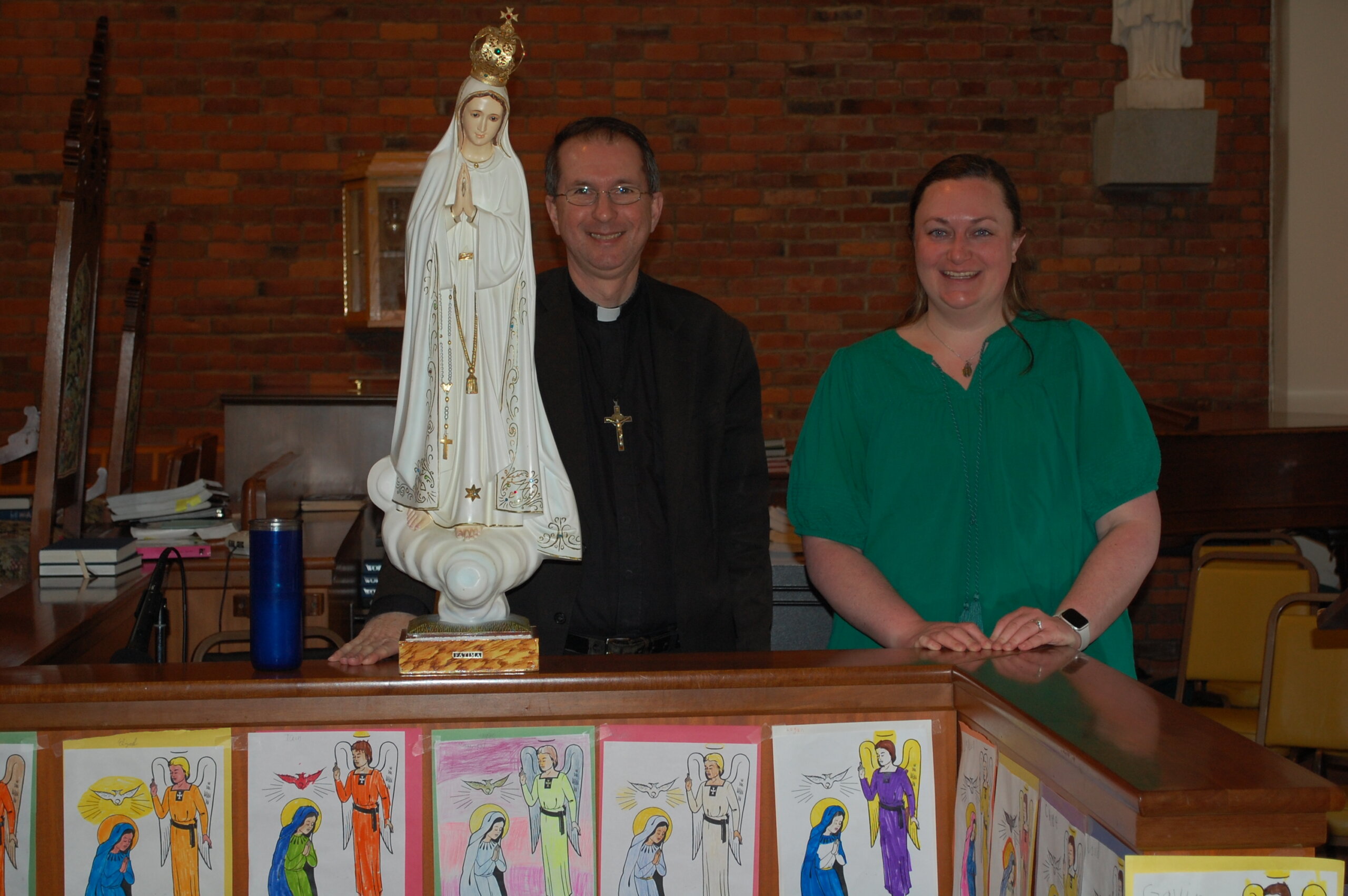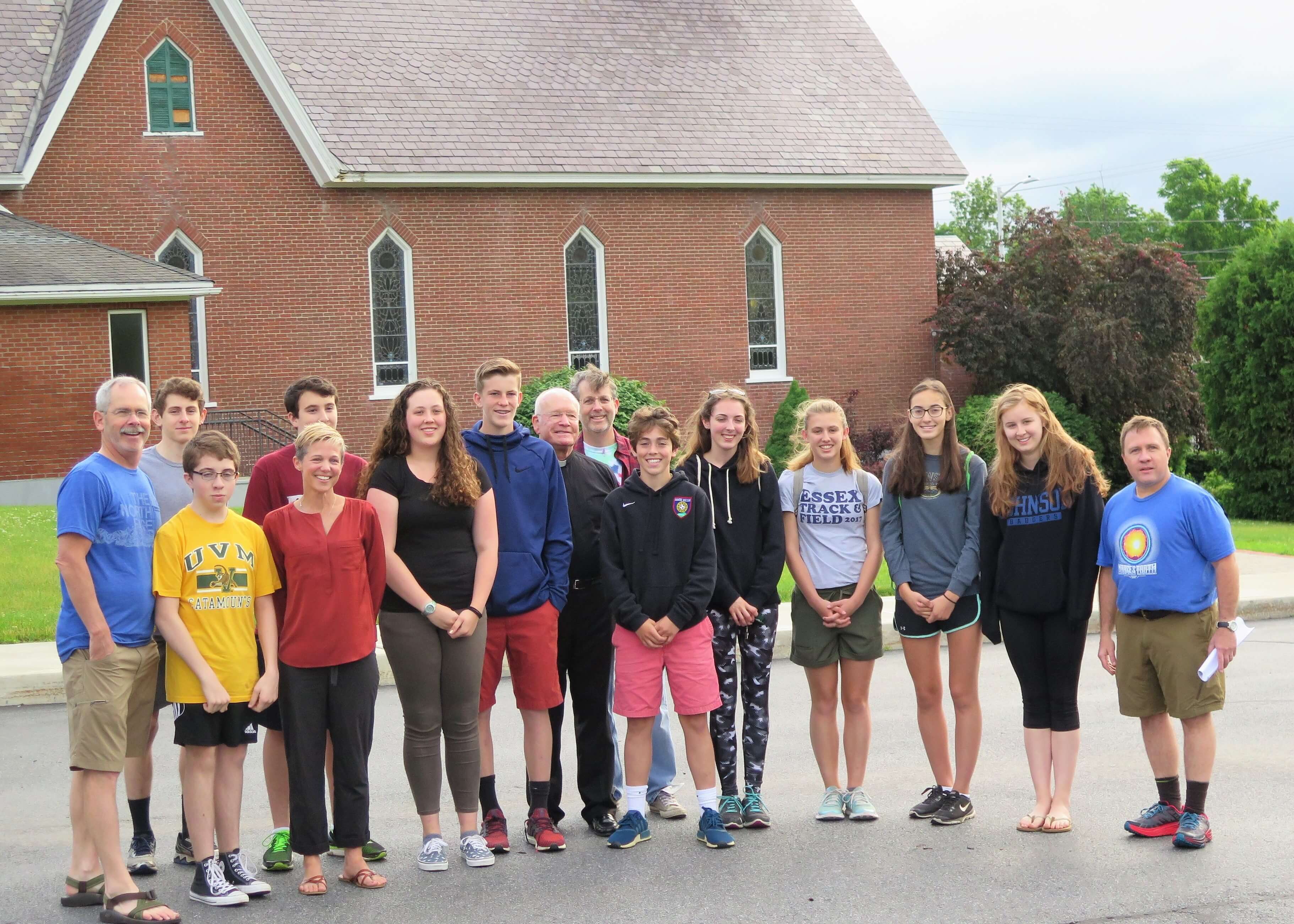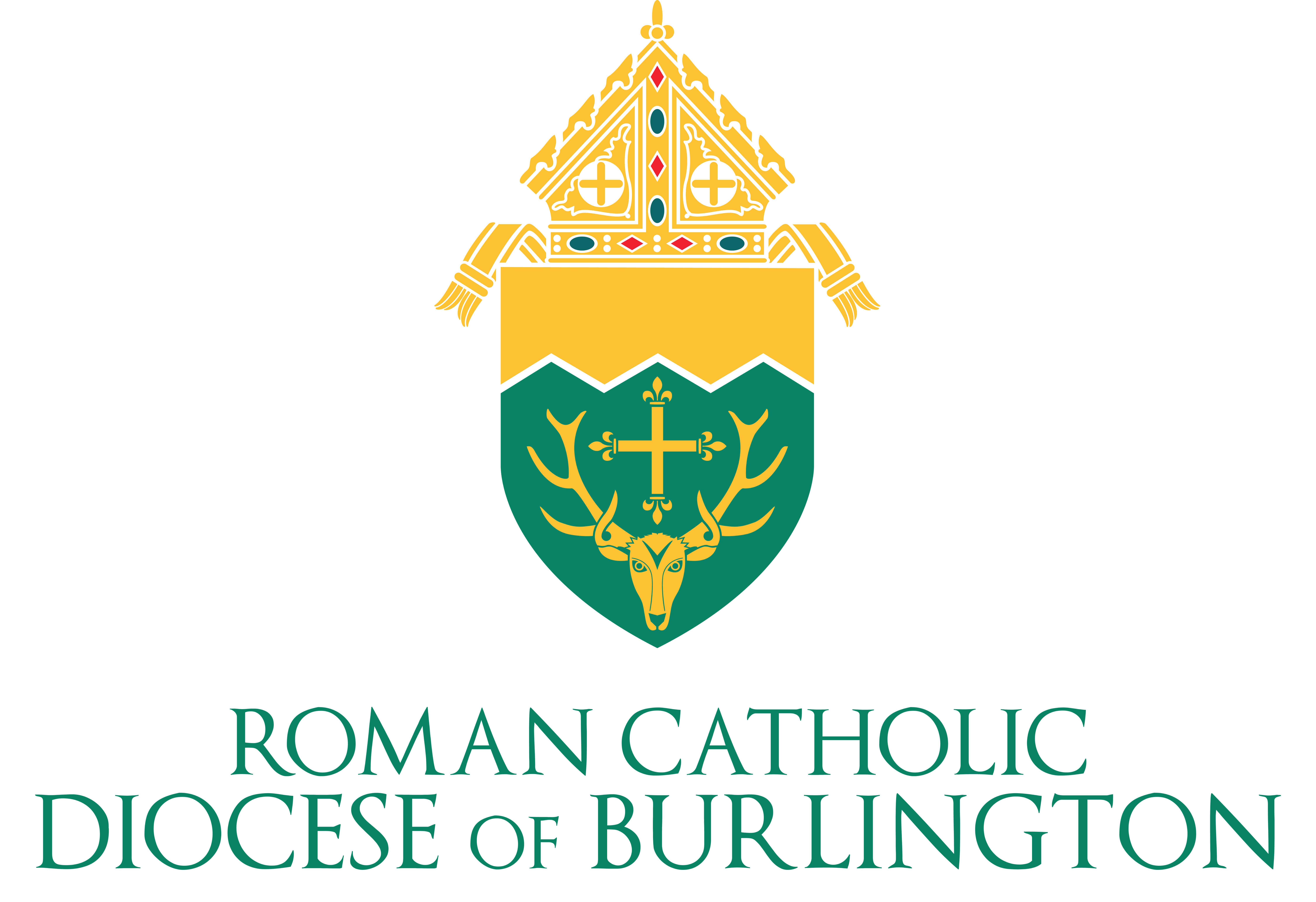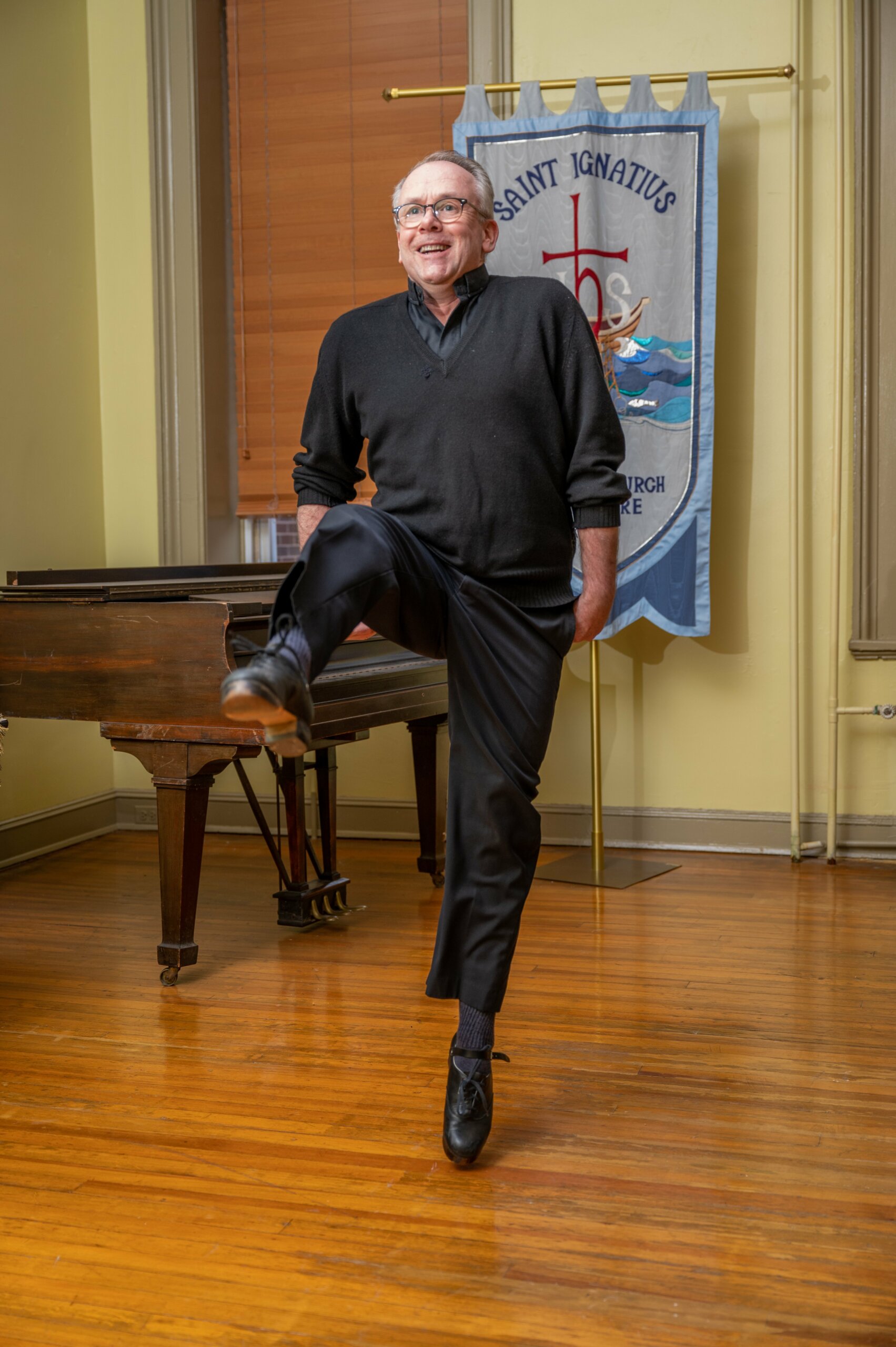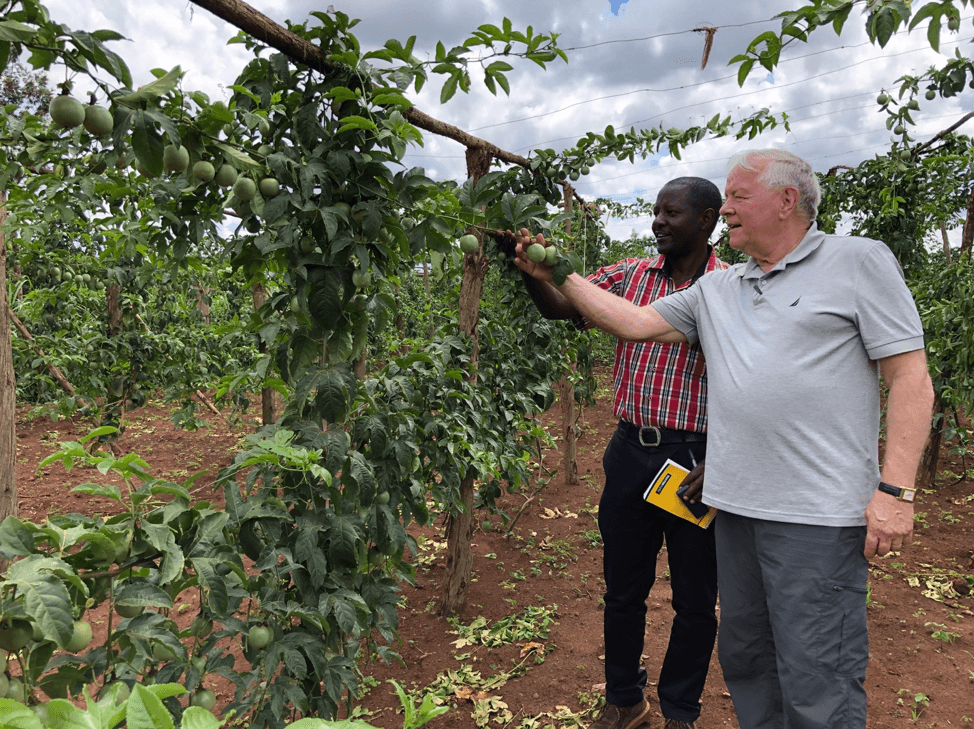Game Changers in Vermont? How are we doing? In the last issue, we considered two “game-changing” events: Pope Francis’s call for the whole Church to embark on a “path of pastoral and missionary conversion which cannot leave things as they presently are” and the gathering of 3,500 Catholic leaders who reflected on the question, “How do we live the Joy of the Gospel in America as Missionary Disciples?” What shape is our response here in the Diocese of Burlington and in our local parishes taking? Our mission is to help each of our Diocese’s 96 parishes and missions show forth the “Joy of the Gospel,” radiate the light of Christ visibly and facilitate an encounter with the same Christ-like love and charity that lead folks to say of the early Christians communities: “See how they love one another.” A lofty goal, yet here are a few highlights of our attempts to implement the movement from maintenance to mission in the Diocese:
Franciscan Sisters of the Eucharist
At the invitation of the Diocese, the Franciscan Sisters have established a mission presence in Vermont. This vibrant community of women, based in Meriden, Connecticut, has a strong focus on bringing the sacred into the secular world. The sisters are excited to be in Vermont and a part of the work of the New Evangelization. Their presence has already been a gift at the University of Vermont Catholic Center, at numerous vocations events throughout the Diocese and as a part of our new Diocesan Lay Formation Program. In addition to their primary ministries, the sisters are available to speak at parishes, schools, religious education programs and other groups. When Bishop Louis deGoesbriand, the first bishop of Burlington, came to establish the Church in Vermont, one of his early actions was inviting religious sisters to assist him in that effort. May these wonderful sisters bear similar fruit in our day.
Parish Staff and Volunteer Retreats
The past few popes have taken their curia staffs for a weeklong retreat each Lent. Instructing the retreatants to leave their work at the office, the retreat gives them the opportunity to “come away for a time with the Lord.” In imitation of this practice, three years ago the diocesan staff at the Bishop Brady Center began taking a one-day retreat each Lent to facilitate our own spiritual lives and growth. This year the Office of Evangelization and Catechesis decided to expand this offering to our parish staffs and volunteers. Two retreat days took place, one for the northern parishes of the Diocese at St. Jude Church in Hinesburg and one for the southern parishes at Annunciation of the Blessed Virgin Mary Parish in Ludlow. Both retreats reflected on Pope Francis’ exhortation, “The Joy of the Gospel,” and how we are to live this joy as missionary disciples in our pastoral ministries. The retreats were well attended and will become an annual offering.
Pre-Cana
The Church has called us to evaluate how we prepare couples for the Sacrament of Marriage: What are we doing well? What could we do better? With these questions in mind, the Diocese has carefully prepared a new formation process designed to equip couples in the spiritual and human skills necessary for marriage in today’s challenging landscape. One part of that shift was to move a portion of the formation to an online platform. Taking advantage of the next generation’s comfort with online learning and considering the fact that roughly a third of the Catholic marriages in Vermont are destination weddings, this is a helpful approach. In addition, a retreat day is offered to the couples to give the couples the opportunity to set a foundation of praying and reading the Scriptures together. On this day, they also receive a blessed crucifix and the Church’s formal “blessing for engaged couples,” gifts that help them in their desire to root their marriage in Christ and their Catholic faith.
Totus Tuus Expansion and Training
Totus Tuus, a summer faith program for young people, is now entering its eighth year in Vermont. Each year teams of young adults — usually college students and seminarians — travel to parishes to lead a week of fun catechesis for the children and teens. In past years, we have sent these young missionary leaders to Nebraska for training. This year, for the first time, the Diocese of Burlington will be hosting the training at St. Anne’s Shrine. We are also delighted to be hosting the Diocese of Portland’s leaders for training. The Diocese of Portland, following Vermont’s lead, will be the second Diocese in New England to run Totus Tuus. Also new this year is an expansion from 10 host-parish sites to 12 throughout the state.
Institute for Missionary Discipleship: Lay Formation Program
Pope Francis is calling for the Church to raise up “missionary disciples.” These are men and women who know how to sit at the feet of Jesus (disciples) and are equipped and inspired to go out into the world (missionaries). The 22 participants in this inaugural two-year formation program are being formed with the spiritual, intellectual and pastoral tools to take back to their parishes and ministries. Applications for the second class will begin in the spring of 2019.
Religious Education Leader Certification
Our parish religious education leaders are often on the front lines of parish life and the new evangelization. In an effort to give them the tools to best fulfill the role entrusted to them, the Diocese has signed a partnership agreement with the Catechetical Institute at Franciscan University of Steubenville. Through online training and in-person mentoring, our parish religious education leaders will be inspired and equipped to be the missionary disciples the Church is calling them to be.
Other Initiatives
The first Diocesan Men’s Conference took place in February, and like the annual Women’s Retreat, will be a yearly event. We are in our second year of offering the Adult Confirmation Program, which culminates with Confirmation administered by Burlington Bishop Christopher Coyne on Pentecost. Parish and regional workshops are offered regularly by the Office of Worship for our lectors and other ministers. Parish missions, retreats and workshops are being offered regularly throughout the state. Finally, the Diocesan Synod, which will convene this fall, will be a tremendous opportunity for the Church in Vermont to come together and discern where the Lord is calling us to go.
In conclusion, we are working to both structurally and personally transform our efforts in Vermont to inspire and equip our parishioners and parishes to radiate the joy of the Gospel through the efforts described above along with many others. These are designed to be some of those “game changers” that Pope Francis envisioned in Evangelii Gaudium, and our American Catholic leaders sought to spark last July. Please pray that, with the Grace of God, these efforts and those in your local parishes may bear great fruit here in our Diocese of Burlington and we may truly radiate Christ’s love and bring those we meet to Our Lord.
Deacon Phil Lawson is the executive director of evangelization, catechesis, divine worship, marriage and family and respect life for the Diocese of Burlington. He can be reached at plawson@vermontcatholic.org.
—Originally published in the Summer 2018 issue of Vermont Catholic magazine.
